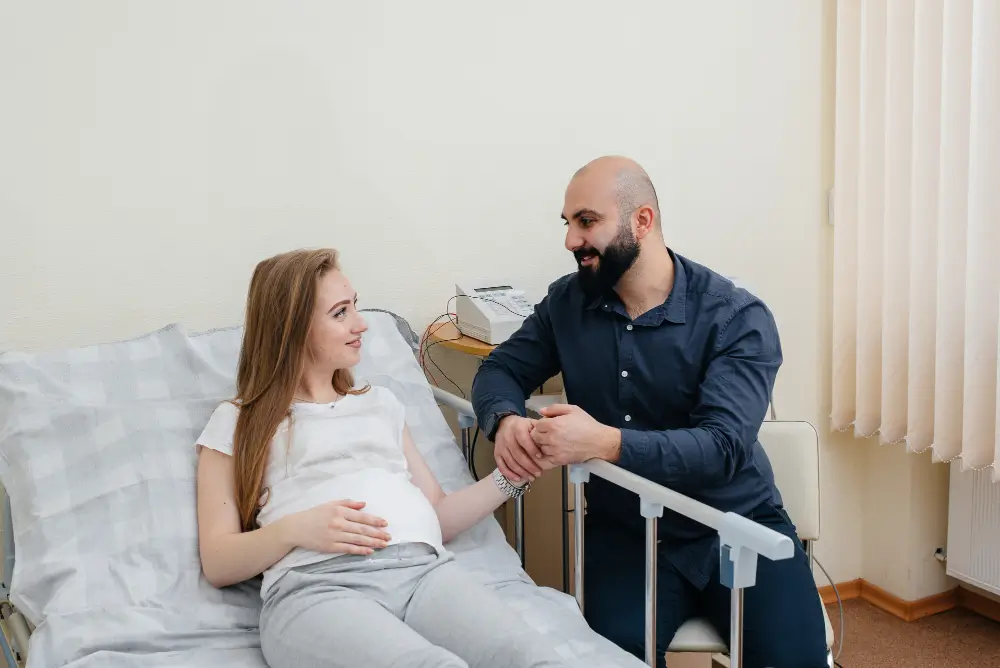Egg donation has come as a blessing to millions of men, women, and couples who cannot have children. If you have thought about being an egg donor yourself or just want to know what the entire process is all about, it is important that you know what egg donation entails, how it is done, and what you can expect step by step. This whole guide will walk you step by step through qualification, egg donor compensation, and the emotional process of egg donation.
Understanding Egg Donation
What Is Egg Donation?
Egg donation is a medical procedure in which a fertile woman gives away her eggs so that the couple or single person can carry a child with the assistance of assisted reproductive methods (ART) like in vitro fertilization (IVF). Donor eggs are stored along with a man’s sperm in a laboratory environment, and the resulting embryos are transferred into the recipient’s uterus.
Why Egg Donation Is Important
Egg donation offers a glimmer of hope to those who are unable to produce eggs capable of fertilization. Recipients are low-reserve women, premature menopausal women, gay male couples, and those with hereditary diseases.
Eligibility Requirements for Egg Donors
Basic Qualifications
Not every woman is eligible to donate eggs. Fertility clinics and agencies have the following minimum requirements:
- Age: 19-30 years (optimal reproductive age).
- Good Health: No significant medical or hereditary illness.
- Healthy Lifestyle: No drug abuse, no smoking, and limited consumption of alcohol.
- BMI: Normal.
- Psychological Readiness: Counseling would be required to make them emotionally ready.
Why Age Matters in Egg Donation
The age group of 19–30 is selected because young eggs have a great chance of leading to successful fertilization and pregnancy. This provides the maximum possibility of successful procedures to the planning parents.
The Step-by-Step Egg Donation Process
Step 1: Application and Screening :
Prospective donors initially undergo medical, family, and lifestyle history. Selected candidates undergo a complete screening process that involves:
- Physical checkup
- Hormonal and infectious disease blood tests
- Genetic testing
- Psychological testing
Step 2: Legal Agreements :
The donor and recipient families sign legal documents to safeguard the parties’ rights. Documents are for confidentiality, payment, and medical liability.
Step 3: Ovarian Stimulation :
The donor is given hormone injections to stimulate the ovaries to release more than one egg in a single cycle. It takes 10–14 days. The donor is checked regularly and on an ultrasound scan to confirm she is tolerating the medication very well.
Step 4: Egg Retrieval :
After preparing the eggs, the donor will undergo a very simple procedure called transvaginal ultrasound aspiration. It is brief (20–30 minutes) and is done under light sedation.
Step 5: Recovery :
They recover from the procedure in one or two days. They get bloating or cramping, but complications are rare. The eggs are fertilized, and the embryos are prepared for the recipient or surrogate.
Egg Donor Compensation
How Much Do Egg Donors Get Paid?
One of the most popular questions is egg donor compensation. Payment to egg donors ranges from $5,000 to $10,000 per cycle, varying depending on clinic, location, and donor type.
Factors Influencing the Highest Egg Donor Compensation
- Experience: Donors with experience can be remunerated more.
- Ethnicity & Background: Donors of a particular ethnic or cultural origin can be paid more as they are in demand.
- Education & Skills: More education or specialist qualifications by the donor can prove to be beneficial.
- Location: Remuneration between states and nations can also differ by a long distance.
Can You Donate Eggs for Money More Than Once?
Yes, you may donate more than once, but clinics do limit how many times you may donate (typically a limit of 6 cycles) so that the donor’s well-being and health are protected.

Emotional and Psychological Aspects of Egg Donation
Understanding the Emotional Journey
Donation of eggs is just as much an emotional experience as it is a physiological experience. Donors need to accept the idea that their biological tissue will be used for the creation of a child whom they will never see.
Support Systems for Donors
Counseling is done in all of the clinics before, during, and after donation. This assists the donors in managing any emotional issues and remaining mentally fit for the procedure.
Risks and Side Effects of Egg Donation
Physical Risks
- Mild cramping, bloating, or discomfort
- Infrequent occurrences of Ovarian Hyperstimulation Syndrome (OHSS)
- Minute risks of anesthesia for egg retrieval
Emotional Considerations
Others are emotionally moved, for instance, with worry about attachment issues, and others are contented and pleased that they were able to give.
Why Egg Donation Is Rewarding
Donation of eggs is an altruistic act in that it gives individuals and couples the chance to have their single most deeply held desire fulfilled and become parents. Although donors are remunerated, the personal fulfillment of enabling a person to begin or continue their family may be invaluable.
Final Thoughts
Egg donation is a safe, ethical experience, and a rewarding one. Donors not only get reasonable compensation but also assist others in becoming parents. If you are interested in donating an egg, make sure that you do so from a registered agency or clinic that offers proper support, integrity, and medical coverage.
At Indian Egg Donors, special care is taken to coordinate with donors to deserving families in a professional, respectful, and compassionate way throughout the process.
Frequently Asked Questions (FAQs)
Q. How much is the average egg donor compensation?
Ans : Egg donor compensation is between $5,000 and $10,000 per cycle based on location, donor history, and clinic.
Q. Who is eligible to donate eggs for money?
Ans : Women aged 19-30 with no actual medical or hereditary problems can donate eggs for money.
Q. What determines the highest egg donor compensation?
Ans : The highest egg donor compensation is usually determined by ethnicity, education, prior egg donation history, and demand in a particular geographic region.
Q. Can I donate eggs more than once for compensation?
Ans : Yes, the majority of clinics permit egg donors to donate eggs up to six times, without putting their health at risk, and giving opportunities to many families.
Q. What age is ideal for egg donation and compensation?
Ans : The ideal age for egg donors is between 19-30 years because eggs at this age are healthier and more likely to lead to successful pregnancies.

Dr. Pooja Patel
Dr. Pooja Patel is a Chief Surrogacy Coordinator at Surrogacy4all. She has 10 years of experience in Anesthesiology and critical care medicine.
She received her medical degree from Seth GS Medical College and K.E.M Hospital in India. She then completed an internship. She finished her Anesthesia residency at Grant Govt Medical College and JJ Group of Hospitals in India.










